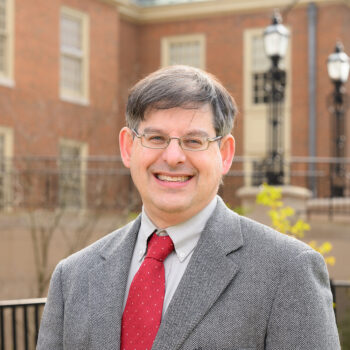The Rise of Political Betting: Insights from Expert Koleman Strumpf
As the world gears up for the upcoming U.S. elections on November 5, 2024, the landscape of political forecasting is undergoing a seismic shift. With the federal court recently lifting the ban on betting in U.S. elections, political betting markets are gaining traction as a more accurate predictor of election outcomes than traditional polling methods. Koleman Strumpf, a renowned expert in political economy and the Burchfield Presidential Chair at Wake Forest University, is at the forefront of this emerging trend.

The Historical Context of Political Betting
For over two decades, Professor Strumpf has meticulously studied political betting in the United States, exploring its intricate relationship with election outcomes. Unlike polls, which can be influenced by biased sampling and fluctuating public opinions, betting markets operate as real-time reflections of collective sentiment among bettors. "A market doesn’t delay information. A market doesn’t spin numbers. A market just gives you numbers," Strumpf emphasizes in an interview with Freakonomics.
The Current Landscape of Political Prediction Markets
With the recent legal developments, platforms such as Kalshi and Interactive Brokers have experienced a surge in betting activity. Strumpf notes that the influx of bets has expanded significantly since the court’s decision, with other established platforms like PredicIt, Betfair, and Polymarket also witnessing increased participation.
Strumpf explains, "Less than half of all bets have been placed thus far. If history is any guide, we can expect the volume to at least double between now and the election." This forecast aligns with previous election cycles, where betting momentum builds as the election date approaches.
Comparing Political Bets and Traditional Polling
As election predictions evolve, an intriguing disparity has emerged between political betting markets and traditional polling data. Strumpf points out that current betting trends indicate a stronger inclination towards Donald Trump than what many polls suggest. Notably, both betting markets and polling data reveal a favorable trend for Trump, particularly in battleground states.
This divergence raises the question: will political betting alter the established polling system? Strumpf indicates that this remains unresolved. "Polling has long held a monopoly on election forecasting in the U.S., but the rise of prediction markets presents a compelling alternative," he notes. Given the challenges plaguing traditional polling—such as declining response rates and unrepresentative online samples—pollsters may need to adapt to remain relevant.
The Future of Political Betting and Its Implications
As the election approaches, the implications of increased political betting extend beyond mere predictions. Strumpf’s insights reveal that these markets could democratize information regarding election outcomes, potentially leading to more informed decision-making among voters. The ability of markets to react swiftly to new information can provide a clearer, more unfiltered picture of public sentiment than traditional polling methods.
In conclusion, as political betting continues to gain momentum, it heralds a new era in how we predict and understand electoral outcomes. With experts like Koleman Strumpf guiding the discourse, the conversation around political betting is not only timely but also essential in navigating the complexities of modern political forecasting. The landscape of electoral prediction is rapidly evolving, and it remains to be seen how both bettors and pollsters will respond to these unprecedented changes as we head toward November 5th.
For those interested in delving deeper into the world of political betting and its ramifications, Professor Strumpf remains available for commentary and insights. As he aptly stated in his interviews, the integration of betting markets into our understanding of elections may prove to be one of the most significant shifts in political forecasting in recent history.
For interview requests or questions, you can contact Professor Strumpf at strumpks@wfu.edu.












